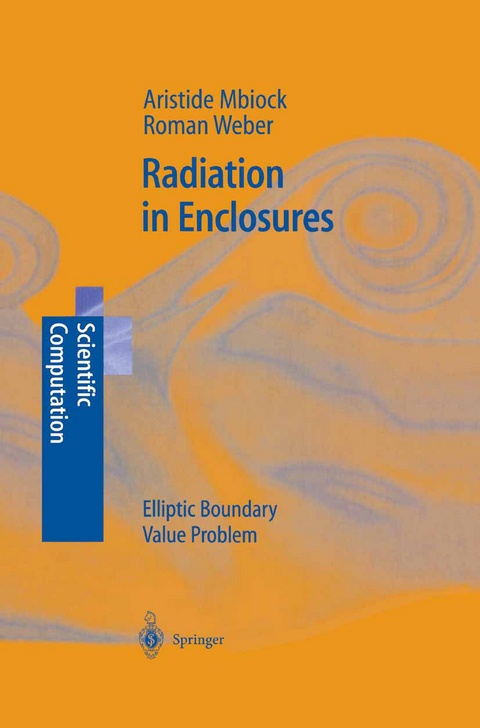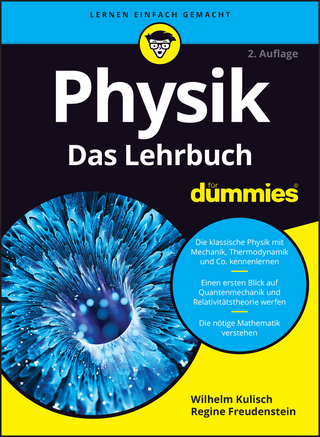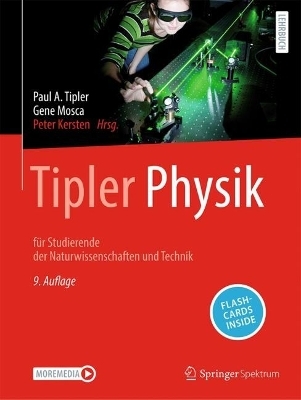
Radiation in Enclosures
Springer Berlin (Verlag)
978-3-540-66095-8 (ISBN)
1 Introduction.- 1.1 Thermal Radiation.- 1.2 Short Historical Background.- 1.3 Motivations, Objectives and Scope.- 1.4 Basic Concepts in Boundary Value Problems.- 2 Physical Model.- 2.1 Emitted Radiation.- 2.2 Incident, Absorbed and Scattered Radiation.- 2.3 Radiation from Particulate Matter.- 2.4 Governing Equations with Shadow Zones.- 2.5 Energy Balance Relations.- 2.6 Energy Balance on a Unit Surface.- 3 Some Computational Methods.- 3.1 Directional Equation Methods.- 3.2 Net Energy Balance Methods.- 3.3 Concluding Remarks.- 3.4 The Boundary Value Equation.- 4 Mathematical Model.- 4.1 Subsidiary Conditions.- 4.2 Analysis of the Boundary Value Equation.- 4.3 Canonical Formulation.- 4.4 Irradiance Formulation.- 4.5 Analytical Form of the Solution.- 4.6 Quadratic Variational Formulation.- 4.7 Variational Solution: Existence, Uniqueness.- 4.8 Continuity of the Variational Solution.- 4.9 Question of Proper Posing Problem.- 5 Numerical Approximation.- 5.1 Description of the Method.- 5.2 Finite Element Representation.- 5.3 Definition of the Approximation Space.- 5.4 Formulation of the Approximated Problem.- 5.5 Convergence of the Numerical Solution.- 5.6 Definition of Shape Functions.- 5.7 Quadrature for the Coefficients of B and L.- 5.8 Algorithm for Computer Realization.- 6 Simulations in Specific Cases.- 6.1 The Transparent Medium.- 6.2 The Isothermal Gray Medium.- 6.3 The Non-isothermal Gray Medium.- 6.4 Non Gray Medium; Band Approximation.- 7 Spectral Properties of Gases.- 7.1 Principle of Infrared-Radiation in Gases.- 7.2 Properties of an Isothermal Gas Species.- 7.3 Properties of a Non-isothermal Gas Species.- 7.4 Medium Containing Several Gas Species.- 7.5 Band Radiation in a Well-Stirred Chamber.- 8 Application to Industrial Furnace.- 8.1 Experimental Configuration.- 8.2 Analysis of Experimental Flames.- 8.3 Concluding Remarks.- 8.4 Photo Panels - Experimental Flames.- 8.5 In-Flame and Wall Measurements.- 9 Radiation in Scattering Media.- 9.1 Formulation of theProblem.- 9.2 Radiation Heat Transfer with Conduction and/or Convection.- 9.2.2 Concluding Remarks.- 10 Conclusion.- Nomenclature.- References.
"The book is concerned with both the formulation and the general investigation and solution of the radiative heat transfer problem in enclosures of any geometrical shape, and for any temperature distribution and material properties. ... the book contains important advances in the radiation theory and will undoubtedly usefull for engineers and specialists in this field." (Vladimir P. Burskii, zbMATH 1139.35044, 2021)
| Erscheint lt. Verlag | 1.3.2000 |
|---|---|
| Reihe/Serie | Scientific Computation |
| Zusatzinfo | XIII, 211 p. |
| Verlagsort | Berlin |
| Sprache | englisch |
| Maße | 155 x 235 mm |
| Gewicht | 476 g |
| Themenwelt | Naturwissenschaften ► Physik / Astronomie ► Allgemeines / Lexika |
| Naturwissenschaften ► Physik / Astronomie ► Theoretische Physik | |
| Schlagworte | Boundary value problem • convection • Heat Radiation • heat transfer • Simulation • Strahlung • Uran • variational methods |
| ISBN-10 | 3-540-66095-X / 354066095X |
| ISBN-13 | 978-3-540-66095-8 / 9783540660958 |
| Zustand | Neuware |
| Informationen gemäß Produktsicherheitsverordnung (GPSR) | |
| Haben Sie eine Frage zum Produkt? |
aus dem Bereich


